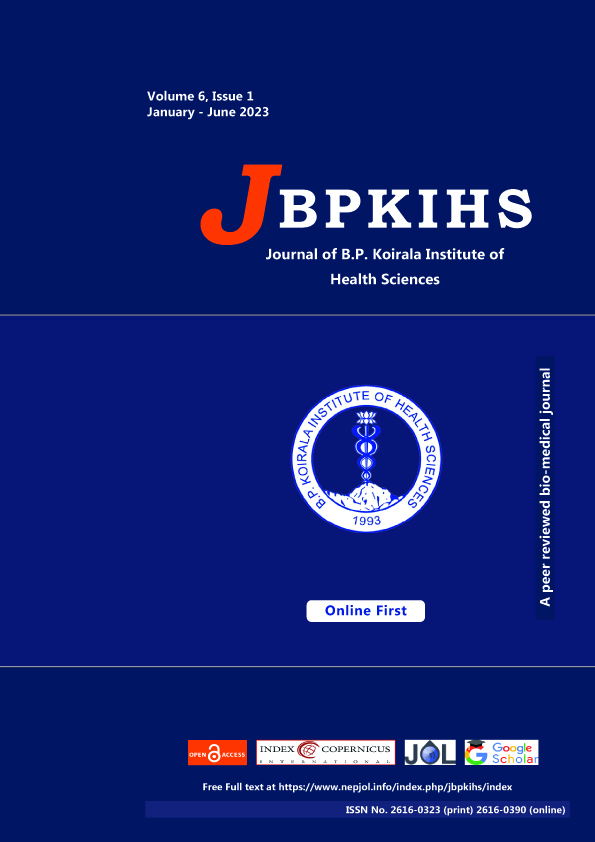Drug Prescribing Pattern among the Inpatients in the Surgery Department of Tertiary Hospital of Eastern Nepal
DOI:
https://doi.org/10.3126/jbpkihs.v6i1.53763Keywords:
General Surgery, World Health Organization, Medication errors, Prescriptions, Quality indicators, Health careAbstract
Background: Prescription is a written instruction by a health care personnel to pharmacist to dispense drug(s). Irrational drug prescribing is a global problem, particularly in developing and transitional countries. This study was conducted to see the status of World Health Organization (WHO) core prescription indicators, complementary indices and prescription errors.
Methods: It was a quantitative cross-sectional descriptive study carried out among inpatients of general surgery of tertiary hospital in eastern Nepal. Ethical approval for the study was obtained from the Institutional Review Committee. It was a convenience sampling. Calculated Sample size was 224. Enrollment of patients started on 16 May 2018 with the last case being enrolled on 1 Oct 2019 after obtaining informed consent. Relevant data was entered in a semi-structured proforma. Microsoft excel 2016 and IBM Statistical Package for the Social Sciences (SPSS) v. 21 were used for descriptive statistics.
Results: Median age of inpatients was 40 (24 - 54) years with male: female ratio being 1.05. Total 1492 drugs were prescribed in 224 prescriptions. Mean number of drugs prescribed was 6.66 ± 2.33. Percentage of drugs prescribed by generic name was 25.60%. Prescriptions with at least one antimicrobial agent was 89.3%. Prescriptions with at least one injection was 92.9%. Percentage of drugs prescribed from the WHO Essential Medicine List was 66.48%. Other complementary prescribing indicators and prescription errors were also calculated.
Conclusions: Most prescription indicators were inadvertently deviated away from WHO standards. Prescription errors were comparable to other studies.
Downloads
Downloads
Published
How to Cite
Issue
Section
License
Copyright (c) 2023 Journal of BP Koirala Institute of Health Sciences

This work is licensed under a Creative Commons Attribution-NonCommercial-NoDerivatives 4.0 International License.
This license enables reusers to copy and distribute the material in any medium or format in unadapted form only, for noncommercial purposes only, and only so long as attribution is given to the creator.




